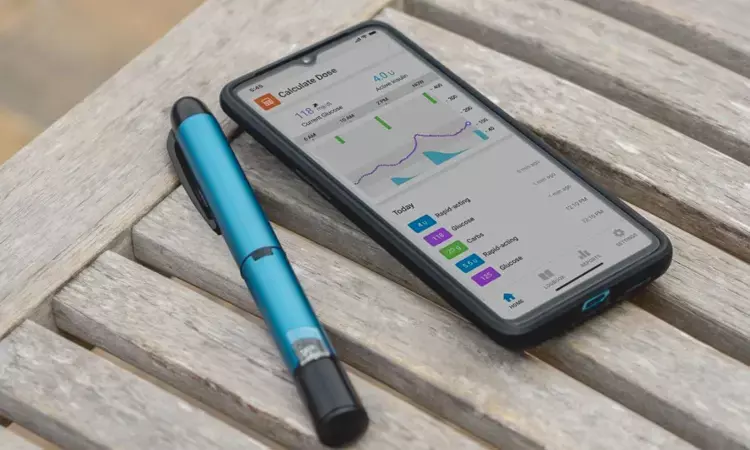- Home
- Medical news & Guidelines
- Anesthesiology
- Cardiology and CTVS
- Critical Care
- Dentistry
- Dermatology
- Diabetes and Endocrinology
- ENT
- Gastroenterology
- Medicine
- Nephrology
- Neurology
- Obstretics-Gynaecology
- Oncology
- Ophthalmology
- Orthopaedics
- Pediatrics-Neonatology
- Psychiatry
- Pulmonology
- Radiology
- Surgery
- Urology
- Laboratory Medicine
- Diet
- Nursing
- Paramedical
- Physiotherapy
- Health news
- Fact Check
- Bone Health Fact Check
- Brain Health Fact Check
- Cancer Related Fact Check
- Child Care Fact Check
- Dental and oral health fact check
- Diabetes and metabolic health fact check
- Diet and Nutrition Fact Check
- Eye and ENT Care Fact Check
- Fitness fact check
- Gut health fact check
- Heart health fact check
- Kidney health fact check
- Medical education fact check
- Men's health fact check
- Respiratory fact check
- Skin and hair care fact check
- Vaccine and Immunization fact check
- Women's health fact check
- AYUSH
- State News
- Andaman and Nicobar Islands
- Andhra Pradesh
- Arunachal Pradesh
- Assam
- Bihar
- Chandigarh
- Chattisgarh
- Dadra and Nagar Haveli
- Daman and Diu
- Delhi
- Goa
- Gujarat
- Haryana
- Himachal Pradesh
- Jammu & Kashmir
- Jharkhand
- Karnataka
- Kerala
- Ladakh
- Lakshadweep
- Madhya Pradesh
- Maharashtra
- Manipur
- Meghalaya
- Mizoram
- Nagaland
- Odisha
- Puducherry
- Punjab
- Rajasthan
- Sikkim
- Tamil Nadu
- Telangana
- Tripura
- Uttar Pradesh
- Uttrakhand
- West Bengal
- Medical Education
- Industry
Smart insulin pens promising in diabetes management: Study shows link between treatment adherence and CGM outcomes

Germany: In the realm of diabetes management, the integration of technology has revolutionized treatment approaches, offering patients innovative solutions to monitor and control their condition better. A recent study investigating the association between treatment adherence and continuous glucose monitoring (CGM) outcomes among individuals with diabetes utilizing smart insulin pens in real-world settings has unveiled promising insights into the efficacy of these devices.
The combined analysis of real-world smart pen and CGM data revealed that missing two basal or four bolus insulin doses over 14 days would be tied with a clinically relevant reduction in time in range (TIR). Smart insulin pens provide valuable insights into treatment injection behaviors.
"Adults with diabetes receiving basal and bolus insulin through a smart pen miss about six doses every 14 days," the researchers reported in Diabetes Care. Each missed basal or bolus insulin dose is tied to a reduction in time in range."
Thomas Danne, Hanover Medical School, Hanover, Germany, and colleagues aimed to evaluate the association of insulin injection adherence, smart insulin pen engagement, and glycemic control using real-world data from 16 countries from adults self-administering basal insulin degludec and bolus insulin with a smart insulin pen (NovoPen 6 or NovoPen Echo Plus) alongside CGM.
For this purpose, data aggregation was done over 14-day periods. Treatment adherence was defined according to the number of missed basal and missed bolus insulin doses and smart pen engagement as per the number of days with data uploads.
The researchers analyzed data from 3,945 adults, including 25,157 14-day periods with ≥70% CGM coverage.
The researchers reported the following findings:
- On average, 0.2 basal and 6.0 bolus insulin doses were missed over 14 days.
- The estimated probability of missing at least one basal insulin dose over 14 days was 17.6%.
- Missing one basal or bolus insulin dose per 14 days was associated with a significant decrease in the percentage of time with glucose levels in range (TIR) of −2.8% and −1.7%, respectively; therefore, missing two basal or four bolus doses would decrease TIR by >5%.
- Smartpen engagement was associated positively with glycemic outcomes.
The integration of smart insulin pens into routine diabetes management regimens holds promise for optimizing treatment adherence and ultimately improving glycemic control. As technology continues to evolve, studies such as these contribute valuable insights that pave the way for advancements in diabetes care, offering hope for a future where individuals can better manage their condition and enjoy improved quality of life.
Reference:
Thomas Danne, Michael Joubert, Niels Væver Hartvig, Anne Kaas, Nikoline Nygård Knudsen, Julia K. Mader; Association Between Treatment Adherence and Continuous Glucose Monitoring Outcomes in People With Diabetes Using Smart Insulin Pens in a Real-World Setting. Diabetes Care 2024; dc232176. https://doi.org/10.2337/dc23-2176
Dr Kamal Kant Kohli-MBBS, DTCD- a chest specialist with more than 30 years of practice and a flair for writing clinical articles, Dr Kamal Kant Kohli joined Medical Dialogues as a Chief Editor of Medical News. Besides writing articles, as an editor, he proofreads and verifies all the medical content published on Medical Dialogues including those coming from journals, studies,medical conferences,guidelines etc. Email: drkohli@medicaldialogues.in. Contact no. 011-43720751


